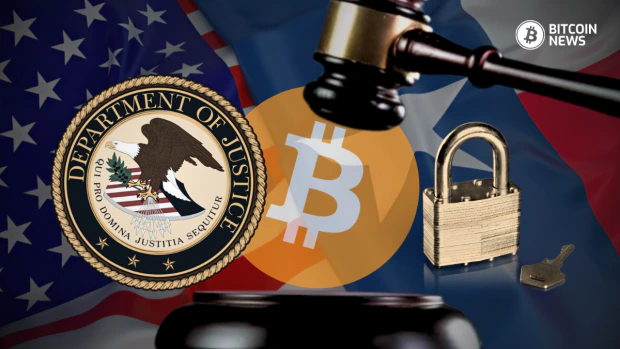A Texas federal court has ordered Frank Richard Ahlgren III, an early bitcoin investor, to hand over the private keys to his digital assets stash worth approximately $124 million.
Ahlgren was convicted of tax fraud in December 2024 and is the first US citizen to be charged with tax evasion for Bitcoin transactions.
Ahlgren’s trouble started when prosecutors found he had underreported millions of dollars in capital gains from bitcoin sales between 2017 and 2019. In 2017 he sold 683 bitcoin for $3.7 million when bitcoin was at $5,800 per coin.
But he inflated the cost basis of the bitcoin on his tax return making it look like he made less profit. Apparently, between 2018 and 2019 he sold another $650,000 in bitcoin but didn’t report the sales at all.
US government says that he now owes over $1 million in taxes.
Federal prosecutors mentioned Ahlgren’s use of advanced methods to obfuscate and hide his transactions. He used multiple wallets, in-person transfers and a bitcoin mixing services to conceal the flow of funds.
Stuart M. Goldberg, Acting Deputy Assistant Attorney General for the Justice Department’s Tax Division said:
“Instead of paying the taxes he knew were due, he lied to his accountant about the extent of a large portion of his gains.”
Now Judge Robert Pitman has issued a restraining order, which mandates Ahlgren to turn over all private keys, passcodes and all devices used to store his digital assets.
The order also prohibits Ahlgren, his family and associates from transferring or hiding digital assets without court approval.
The assets covered by the order are bitcoin, Ethereum, Litecoin and other digital assets. Judge Pitman said Ahlgren can only use funds for “normal monthly living expenses” until the restitution is paid or further court orders are made.
The government believes getting the private keys to these assets are a very important step in the case.
Without them Ahlgren’s digital assets stash would be gone. “Should the private keys be lost or destroyed, the virtual currency is irretrievable,” the prosecutors said.
Ahlgren pleaded guilty to filing a false tax return in September 2024 and was sentenced to 2 years in prison and 1 year of supervised release. He now owes $1.1 million in restitution to the government.
This is the first time a high-profile US criminal tax evasion case is centered around Bitcoin.
Lucy Tan, IRS-CI acting special agent said it’s a warning to the rest of the digital asset space. This case shows that Bitcoin transactions are taxable and trying to evade taxes has consequences.
Ahlgren’s lawyer, Dennis Kainen, said that his client plans to comply with orders issued by the court.
“We will comply with the court directive, or to the extent that we have a question, we will direct it to the court. We appreciate the care that Judge Pitman has taken throughout this case,” Kainen said.
During the trial it was shown that Ahlgren used some of his bitcoin to buy property in Park City, Utah. The government is seeking restitution, but the restrictions on Ahlgren’s assets are to preserve their value for when he pays back.










